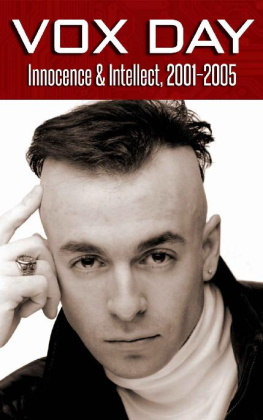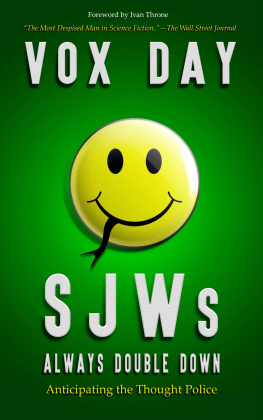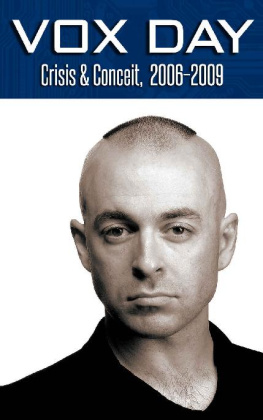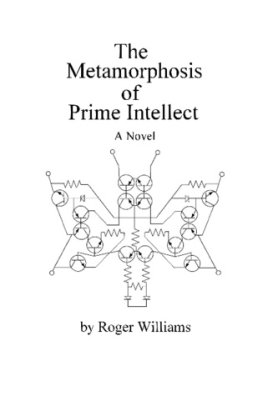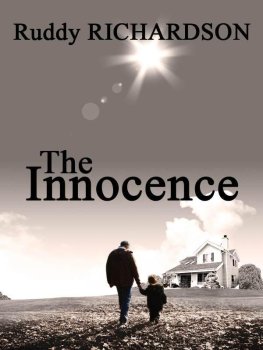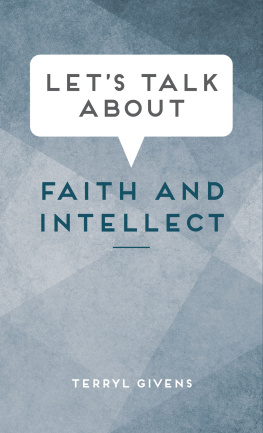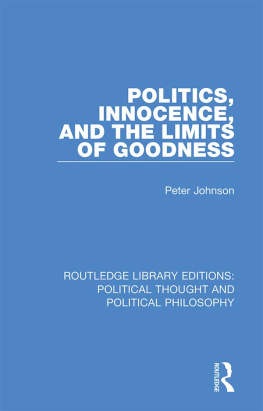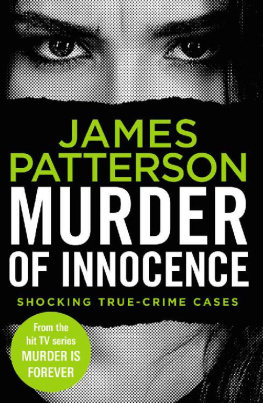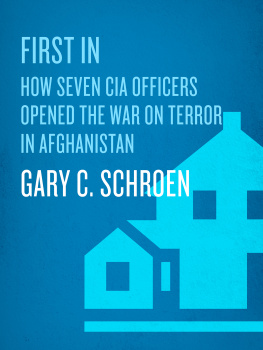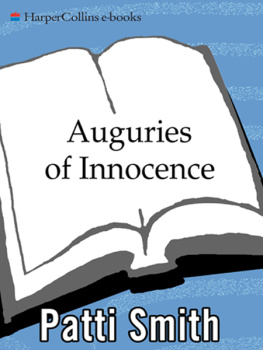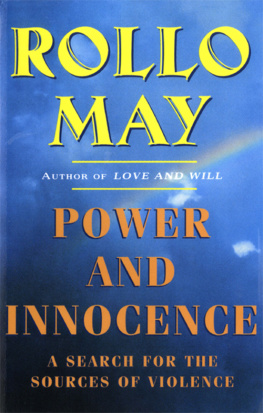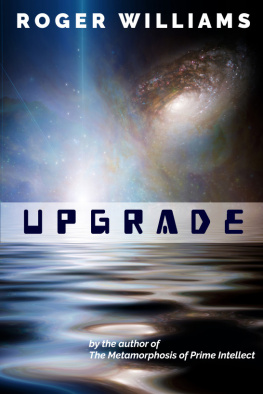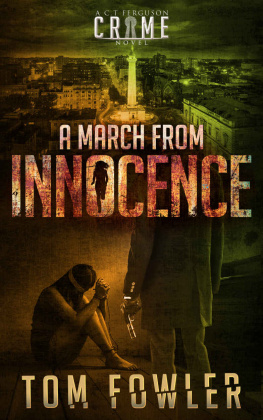Vox Day - Innocence & Intellect, 2001–2005
Here you can read online Vox Day - Innocence & Intellect, 2001–2005 full text of the book (entire story) in english for free. Download pdf and epub, get meaning, cover and reviews about this ebook. year: 2018, publisher: Castalia House, genre: Art. Description of the work, (preface) as well as reviews are available. Best literature library LitArk.com created for fans of good reading and offers a wide selection of genres:
Romance novel
Science fiction
Adventure
Detective
Science
History
Home and family
Prose
Art
Politics
Computer
Non-fiction
Religion
Business
Children
Humor
Choose a favorite category and find really read worthwhile books. Enjoy immersion in the world of imagination, feel the emotions of the characters or learn something new for yourself, make an fascinating discovery.
Innocence & Intellect, 2001–2005: summary, description and annotation
We offer to read an annotation, description, summary or preface (depends on what the author of the book "Innocence & Intellect, 2001–2005" wrote himself). If you haven't found the necessary information about the book — write in the comments, we will try to find it.
Innocence & Intellect, 2001–2005 — read online for free the complete book (whole text) full work
Below is the text of the book, divided by pages. System saving the place of the last page read, allows you to conveniently read the book "Innocence & Intellect, 2001–2005" online for free, without having to search again every time where you left off. Put a bookmark, and you can go to the page where you finished reading at any time.
Font size:
Interval:
Bookmark:
Innocence and Intellect: 2001-2005
Vox Day
Castalia House
Kouvola, Finland
www.castaliahouse.com
This book or parts thereof may not be reproduced in any form, stored in a retrieval system, or transmitted in any form by any meanselectronic, mechanical, photocopy, recording, or otherwisewithout prior written permission of the publisher, except as provided by Finnish copyright law.
Copyright 2017 Vox Day
All rights reserved
Cover Photo: John Wagner
Version: 001
In 2001, the Drudge Report was still a fresh concept. Joe Sobran was still alive and his weekly opinions appeared alongside Pat Buchanans. In those days, it seemed that most right-wing notions came from the AM radio stations, as we listened attentively to Limbaugh and Savage. At the bottom of the Drudge Report was a link to WorldNetDaily, and on that website there were a wide variety of syndicated conservative writers, many of whom were not carried by my local newspaper.
One particular writer had a unique presence at WorldNetDaily. The black-and-white photograph of him showed a young man in his prime, sporting a cutting-edge haircut and a look in his eyes of aged wisdom. This mysterious character called himself Vox Day.
Back then, Vox was known for being a Christian libertarian. Though I never fully ascribed to his line of political thinking, his writings went deeper than politics, delving into a philosophy of life with which I could identify. This man represented a younger generation. Reading his work back then, I thought to myself that after the other archons of the American Right passed away, this man would still be around, and he would be a successor to the twentieth-century conservative political fathers.
Vox appeared to be some sort of mutant. While the usual talking heads on the Right were repeating textbook conservative slogans, Voxs words were electronic, upgraded, and fresh. At the very bottom of his articles was a link to his blog, Vox Popoli. Once I jumped through that gateway, I found myself on Voxs own turf, where he shared whatever political or philosophical thoughts entered his mind. His approach to the issues, in his articles and his blog posts, seemed unconventional; yet his discussions cut through so many barriers the Right could not bear to breach. He went over, above, and beyond the minds of traditional right-wing pundits. His articles touched on many different topics, from digital media, to political philosophy, to the supernatural, to the culture of the Millennial generation.
One article that I will always remember was titled Satan, Science, and the Supernatural. It was unusual to mix these three elements in a discussion the way he did. It was a new way to look at things. He produced a synthesis of different elements at play in the world. Elements of American society that were often overlooked were brought together in different amalgamations that I did not expect. Though the overall points Vox made in those days seemed to escape the older conservatives, younger readerssuch as myself at the timewere able to grasp where he was coming from. His consistent readers came to share many of his sentiments.
Voxs most notable stance was visible shortly after the terrorist attacks of September 11, 2001. His opinion went against the grain of much of the countrywhich seemed completely ready for all-out war. He recognized that America would have to be master of its own culture before it could successfully defeat an external enemy. The axioms of his arguments differed from those of many talking heads. In fact, most conservative commentators were emotional about the War on Terror. America had suddenly been transformed into a nation of warhawks. However, Vox was steady and consistent, to the point that he was at the forefront of a cultural change that most did not foresee. Readers would discover that Vox was at odds with many Americans who felt justified to send our military off to war in Iraq.
War corrodes a society by allowing centralist forces within government to excuse actions they would never be allowed to take in more peaceful times, by encouraging the dehumanization of the enemy population, and by providing an easy means of stifling reasonable dissent.
It was 2002 when he wrote this, and his sentiment would not be manifested by Americans until the mid-term elections of 2006, when voters were fed up with the wars and turned their backs on a power-drunk Republican Party. By then, the electorate was well aware that their representatives had used the War on Terror to excuse their runaway abuses.
At first, I was not completely on board with his opposition to the war. For me, it took another yearand more of his convincing insight. Meanwhile, by the end of 2002, Vox was reflecting on democracys failures. He boldly admitted he had no problems with discrimination, and he was openly calling out the flawed worship of diversity. Bear in mind that this was at a time when the word cuckservative did not even exist. The Right was still living in dread fear of being called racist, yet he stood by his principles in the face of renunciations.
Before Alex Jones Infowars became an internet sensation, Vox Day was calmly challenging the encroachment of globalism, Big Brother, the IRS, and the loss of Americans individual freedom. As the years passed, the headlines to his columns showed more contempt and dissatisfaction with a bankrupt culture, and one could see this frustration in titles like: The Stink of America Rotting, and The Wrinkled Whores of Wall Street. Vox never apologized for his firm opinions on the state of things. And though this negativity seemed discordant to the older archons of the Right, his headlines expressed precisely the sentiments of people my age.
You would look at a picture of Vox Day, reflect on the alien mohawk he sported, and youd almost think he came from the future. It sure seemed as though he could predict it. This was not a blowhard emotional young narcissist with a flimsy opinion. He always knew what he was talking about. Nor was he a one-trick pony. By the time the tide was turning, and Americans were having second thoughts about what Vox called the War on a Tactic, Vox was already discussing the state of Americas failing economy. Comparing Keynesian and Austrian economics, reconsidering American policies on international trade, and exposing the lying financial media, his articles were some of the first to recommend caution in the expectation of a coming recession. He recommended people get out of debt and invest in metals. In mid-2003, Vox was already discussing an inevitable real estate crash that wouldnt happen for another five more years. His expression of Americas disdain for crippling free trade would not be fully realized until President Donald Trumps election in 2016almost a decade and a half later.
From the beginning of his time with WorldNetDaily in 2001, his writing seemed to surpass all of the typical right-leaning thinkers up until that point. And now, with the benefit of hindsight, we can see that almost every one of his positions from that early period have been vindicated by the recent events of 2016. I consider myself fortunate to have been able to discover such a writer from the beginning, and I truly feel as though I witnessed the embryonic stages of what would later become a great cultural change in America. Vox Day did not hesitate to call out the grinning jackals and betrayers of our nation from the very start. He was, and still remains to this day, ahead of the curve.
Laramie Hirsch
Tulsa, Oklahoma
Font size:
Interval:
Bookmark:
Similar books «Innocence & Intellect, 2001–2005»
Look at similar books to Innocence & Intellect, 2001–2005. We have selected literature similar in name and meaning in the hope of providing readers with more options to find new, interesting, not yet read works.
Discussion, reviews of the book Innocence & Intellect, 2001–2005 and just readers' own opinions. Leave your comments, write what you think about the work, its meaning or the main characters. Specify what exactly you liked and what you didn't like, and why you think so.

